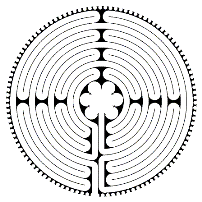The question was asked first on LinkedIn where other answers can be found. My answer was:
“Dear Sherri, Refusing to dig deep is not so much an invincible ignorance as it is an ignorant invincibility.
There is a major difference between knowing something is wrong and being willing to do something about it that would require change.
Perhaps the root-cause of refusal to seek root-cause is an unconscious acknowledgement of the power of will in the face of reason and emotion.
Which of these faculties has the reins: the will, the reason, or the emotions?
Often will power's hold on someone is seen as emotions running rampant in the face of cool reason. But the heart has reasons that reason does not know. All reasoning is ultimately hypothetical.
As a result, one of the root causes of refusal to seek root-cause may be a deep understanding that causal analysis ultimately fails to produce the certainty some would promise and others desperately seek.
Trying to "handle" someone else's will requires a much deeper knowledge of what "handling" means to you and them. "Handling" suggests a form of manipulation.
With a stong-willed person, the smell of it will be noticed from miles away. You may want to lead persons to see root causes, but most often they will only see them if either they agree with all of your assumptions that must be clearly examined or they are persuaded emotionally by your rhetorical skills.
Since many have been down either or both of those roads before and have seen the precarious results, they may be like the proverbial horse you have led to water that they will not drink.
Being their neighbor, boss, committee member, or employee, whatever becomes a task unless you decide to love them as yourself. From a lover's perspective, the will to join them on their journey to "get it" is no longer one of domination but of a deeper form of education.
This form of education is about informing the will with insight and insight into oversight. At some point, the best you can do is "save" a conflict, by agreeing to disagree or giving in to the other person, out of a sense of patience. The truth of the conflict will eventually expose itself.
The key then is to be or become a trustworthy person and realize that sometimes you are not the one called on to "save" the other person from themselves. In effect, the root cause for their refusal to seek root cause may be those of us who pursue them without recognizing our own blind spots. On the other hand, when we know in our hearts we are right about something, we may have to be willing ourselves not to agree to disagree, not to give in, and not to "save" the relationship, but rather be willing to sacrifice it to maintain not only our own integrity but to show the other person how important the matter is.
It is better under some circumstances, for all parties concerned, that we be willing to risk the relationship rather than give in. This may be the test of our wills that the other person needs or wants to get the truth by showing it to them rather than telling them about it or forcing them to find it in our presence. Here our actions speak louder than our words. John”
What do you think?
Please include your comment here or contact me to discuss.
Thanks.
John Darrouzet
for people who want to make better decisions
The Decision-Maker's Path (tm)...
Quick Overview
Blog Archive
-
▼
2008
(132)
-
▼
March
(81)
-
▼
Mar 02
(10)
- Would you give a special treatment to your staff w...
- What do you consider to be appropriate ways of res...
- WHY: Is Humility Really Powerful?
- What's your brand?
- Are you aware of nonviolent communication?
- How do you inspire passion and real loyalty in you...
- WHY: Do we have two faces?
- Refusing to dig deep?
- What is the secret to overcoming moral schizophrenia?
- Alphabetical List of Blogs
-
▼
Mar 02
(10)
-
▼
March
(81)
Discovering the centers ...

... of embedded insights
MOVIES FOR DECISION-MAKERS
Below are the cover images of movies for decision-makers, with clues to better decision-making.
Romero: the significant decision
"I know men and I tell you that Jesus Christ is no mere man. Between Him and every other person in the world there is no possible term of comparison. Alexander, Caesar, Charlemagne, and I have founded empires. But on what did we rest the creation of our genius? Upon force. Jesus Christ founded His empire upon love; and at this hour millions of men would die for Him."
--Napoleon
Decision-making: like climbing ...

a spiral staircase...one step at a time.
John Darrouzet
Special Counsel for Decision-Makers
Links
Followers
Subscribe To
********************* Advertising Disclaimer *********************
NOTE WELL:
Allowing the placement of the ads set out below should not be interpreted to constitute an endorsement or recommendation in any way by Special Counsel for Decision-Making or John Darrouzet of the content or programs referred to therein by the advertisers.
*****************************************************************************************************************************************
Allowing the placement of the ads set out below should not be interpreted to constitute an endorsement or recommendation in any way by Special Counsel for Decision-Making or John Darrouzet of the content or programs referred to therein by the advertisers.
*****************************************************************************************************************************************
*************************** Legal Notice **************************
Decision-Maker's Path (tm) trademark by, and blog content copyright © 2008, John Darrouzet. All rights reserved.

















































No comments:
Post a Comment